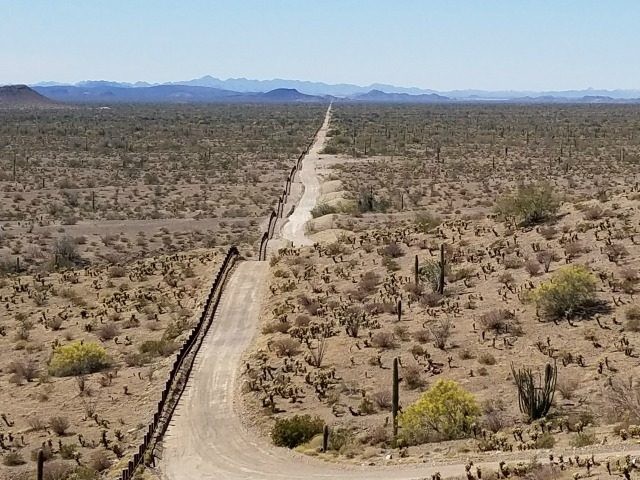U.S. border agents arrested about 8 percent fewer people in July at the southwest border than in June, but the number of migrant families detained remained nearly constant, according to figures released on Wednesday by the Department of Homeland Security.
A total of 31,303 people were arrested at the U.S. border with Mexico in July, compared to 34,095 in June. Of those detained after attempting to enter the United States illegally, about 4,000 were children crossing the U.S.-Mexico border alone, compared to about 5,100 children in June.
About 9,300 “family units” were arrested, according to the data, nearly unchanged from the prior month’s 9,400.
The numbers come in the wake of President Donald Trump’s “zero tolerance” policy, implemented in May, in which federal agencies were ordered to prosecute all immigrants apprehended entering the United States illegally.
Under the policy, parents were held in federal detention pending prosecution, while their children were sent to shelters or foster homes, often far from their parents. More than 2,500 children were separated from their parents, and more than 400 parents are believed to have been deported without being reunited with their children.
In June, Trump ended the family separations after an intense public outcry. But his administration has sought to attribute a two-month drop in arrests at the southern border to its policy of prosecuting more people for crossing illegally.
“This decrease shows that when there are real consequences for breaking the law, the conduct of those considering crimes will change,” DHS spokesman Tyler Houlton said in a statement on Wednesday.
Month-to-month fluctuations in arrests at the border are typical, however. In every year since 2006, except 2017, July arrests have been lower than those in June, according to U.S. Border Patrol data.
Border apprehensions plummeted during the first few months of Trump’s presidency, to a low of 11,126 in April 2017, but have since crept back up to levels comparable with those during the Obama administration.
Randy Capps, director of research for U.S. programs at the Migration Policy Institute, a non-partisan group, said the trend of border crossings this year is similar to periods during the Obama administration, when no zero tolerance policy was in place.
“There’s no evidence that any policy change they’ve made one way or another has significantly affected the seasonal pattern of apprehensions over the last few months,” Capps said.
(Reporting by Yeganeh Torbati, editing by Sue Horton and Tom Brown)

